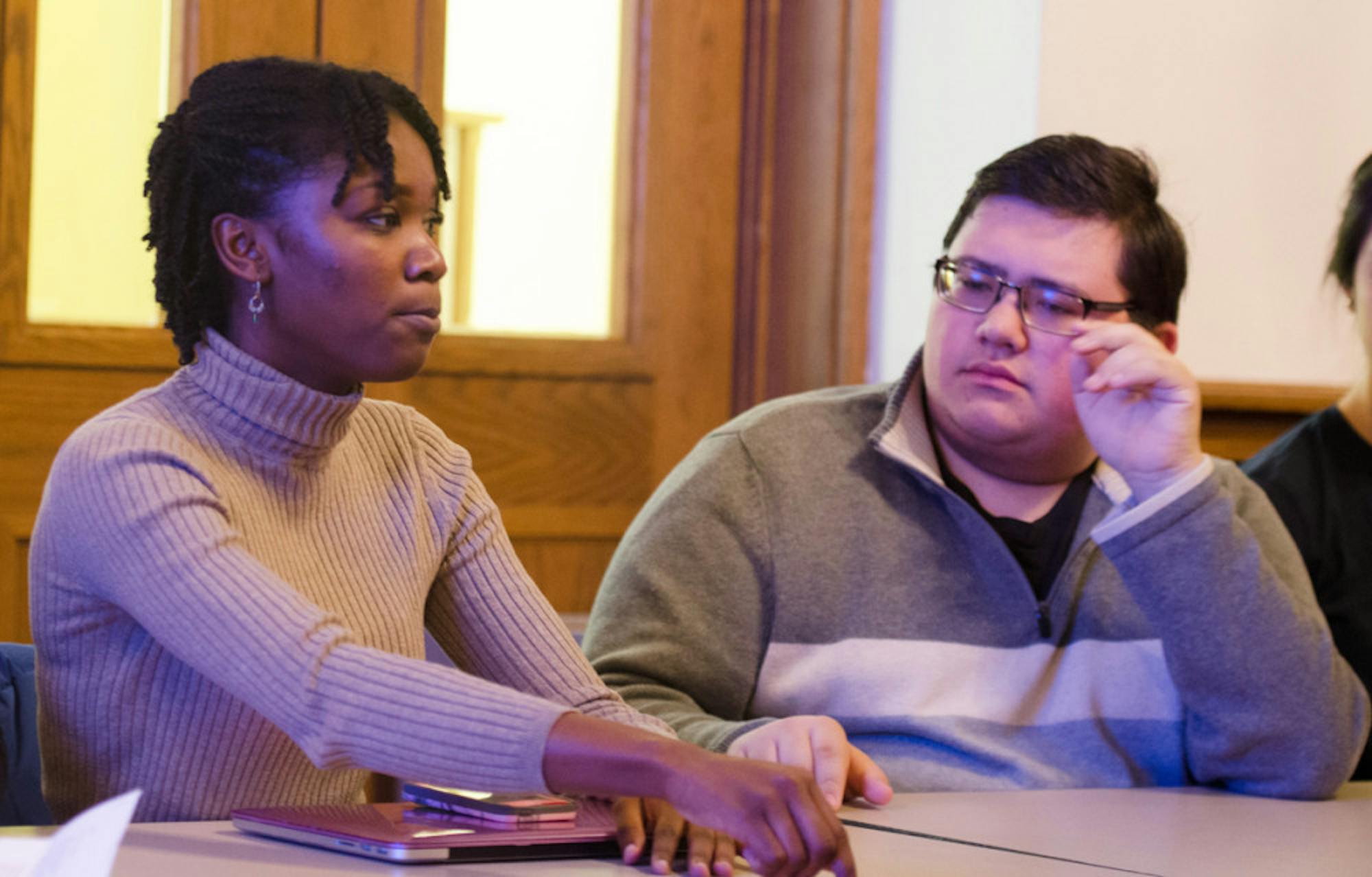Students discussed the merits of education reform in a debate sponsored by BridgeND Tuesday night in the McNeill Room of the LaFortune Student Center. The students participating in the debate divided into two teams, one of which argued for universal public education while the other argued for school choice and increased privatization.
Those in favor of increased privatization outlined a system, which sophomore and BridgeND secretary Mimi Teixeira described.
“A school takes a voucher, the voucher has a certain amount of money associated with it,” she said.
With a voucher system, each student would receive a voucher with an equal monetary value, Teixera said.
Freshman Liam Dalton, another participant in favor of privatization, said competition and the free market create higher quality schools.
“I think there is an argument to be made for creative destruction in the area of education,” he said. “It is the same way that we built one of the world’s greatest economies. ... We had to allow businesses who were not doing well, not meeting standards, to fail to a certain extent.”
Teixeira said a lack of incentives has harmed the current public education system.
“Do I think schools right now have any incentive to create better, more educated students?" she said. "No, they do not, especially in public schools where they have nowhere else to go. There are teachers who pass illiterate students every year.”
Increased privatization would also help students with disabilities, she said.
“Mentally and physically disabled kids are suspended and expelled at higher rates,” she said. “I think that part of the reason for this is that public schools do not have the resources or ability to take care of these kids.”
Sophomore Geralyn Smith, a member of the team in favor of keeping and strengthening universal public education, said a more educated population would benefit the country.
“It would be in the government’s best interests, if [it] wants to increase the capital of each individual,” she said.
Freshman Kylie Ruscheinski, who also argued for public education, said competition is not unequivocally beneficial in an education system.
“It should be a right for every child — no matter what socioeconomic class they are born into — they should have a right to an education,” she said. “Competition has a benefit, but only so far. ... When schools are focused primarily on beating other schools, the students who fall through the cracks in that system are the kids with special needs and disabilities, those who are expelled.”
Senior Dan Sehlhorst said there are dangers to a privatized education system.
“The outcome of the privatization scheme is that the schools that produce the best economic effect will get more students and prosper, while schools that focus less on return, on investment will not prosper — which is not what an education should be,” he said.
“It scares me when we think of education as another competitive sphere in the free market — in competition there are always winners and losers,” freshman Adam Wiechman said













